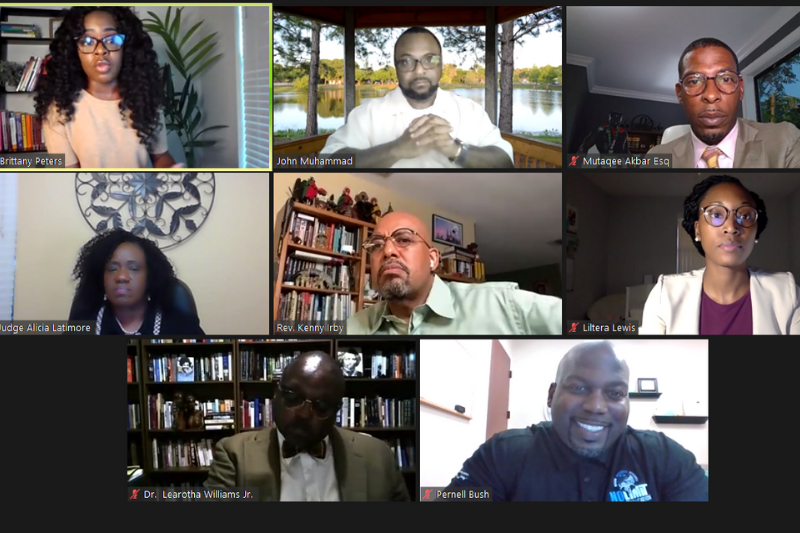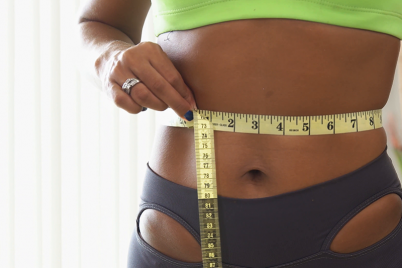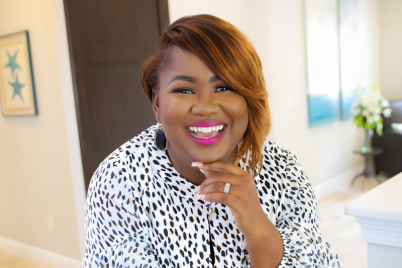BY FRANK DROUZAS, Staff Writer
ST. PETERSBURG — In honor of National Minority Mental Health Month, the Center for Wellness and Clinical Development held its second annual State of Black Health conference on July 28. The virtual dialogue from leaders across Florida featured recent data trends and a courageous conversation about mental health in the Black community.
Mental health issues, namely depression, have increased among Black adults in the past year, noted Dr. Brittany Peters, founder of Center for Wellness & Clinical Development. Suicide rates have also increased across the state, she added, particularly impacting minorities.
Tennessee State University Professor Learotha Williams, Jr. pointed out that African Americans trying to cope with mental health issues has its origins in slavery, Jim Crow laws, and the racism that persists today.
Pernell Bush, managing partner and practicing mental health therapist at K.E.Y. Counseling Solutions, explained that African Americans as a group could experience communal trauma –such as viewing George Floyd being murdered on television, which can have lasting effects and likened it to post-traumatic stress disorder (PTSD).
“[Whether you’re] directly impacted by the trauma, or you hear about it, or you see it, you know, that’s something that you can carry with you,” he said.
Rev. Kenny Irby, director of Community Intervention and Juvenile Outreach for the St. Petersburg Police Department, added that “active traumatic stress” is exacerbated by social media these days.
“We’re not just reading about it anymore and told about what individuals endured and witnessed, we’re seeing it live,” he said, adding that young people are especially susceptible to this.
Peters noted that too many Blacks people turn to harmful coping devices, such as drug or alcohol abuse, and increasing health disparities in the process. The Center for Disease Control released a report stating that from Feb. to Sept. of last year, depression for African Americans increased seven percent.
Mutaqee Akbar, Esq., president of the Leon County NAACP, said the issues for many were compounded due to COVID and racial tensions last summer. The lack of usual coping mechanisms in the past year — such as attending church or even grieving for a loved one with a funeral — contributed to stress and depression.
Contributing to this would be the fact that many people are still staying at home more than ever and “being fed almost 24 hours a day, seven days a week” the stressful news, he said.
“Are we going to catch COVID? If we do catch COVID, are we going to die from COVID? Are we going to get shot by police? Are we going to get profiled by police? Are we going to have to deal with the violence in our home community,” he asked. “All those things are coming at us left and right.”
Judge Alicia Latimore, first Black female Circuit Judge in the Ninth Judicial Circuit Court of Florida, said since there was already a shortage of resources in many Black communities, the COVID situation exacerbated the problems.
“Where do I go to get help,” she asked. “How do I support my family? Where do I get food? Where do I get all this assistance that I may need even more so than I need before the COVID got here?”
Irby added that whatever it was that people found relief and solace in — be it a visit to church or to the barbershop or salon — was uprooted during the pandemic.
“That has added to that communal stress,” he said.
Liltera Lewis, author, editor, publisher and screenwriter, said social isolation, necessary through the pandemic, has contributed to this stress, and the limited coping mechanisms deterred many from properly releasing any “negative energy.”
“Isolating ourselves has been the biggest impact with the depression aspect,” she said. “When you’re having to be alone, you’re forced to deal with your own trauma, so to speak,” she said.
Latimore expressed concern over long-reaching effects, such as children being raised by parents who have been traumatized. These children may experience learning disabilities along with mental or emotional issues as a result.
Akbar noted that children experiencing mental issues are often uncommunicative of their feelings as adults are. Peters lauded literacy efforts like the Barbershop Book Club, which encourages youngsters to read aloud while waiting to get a haircut.
Community activist Bro. John Muhammad noted that it’s difficult for some in the Black community to even talk about mental health without talking about the stigma that comes with it. One thing to come out of this past pandemic year, Akbar said, is that this stigma has decreased, as people are more willing to talk about mental health issues these days.
“People are acknowledging it a lot more,” he said, adding that even international superstars like Olympic gymnast Simone Biles and tennis player Naomi Osaka announced to the world that they were suffering from mental health issues. “We’re coming out of that stigma, but it’s still there.”
Latimore explained that since Black people have always experienced a society where they felt they had to be “twice as good” and not show any weaknesses or anything that “can be used against us,” just to be accepted.
“That’s the way mental health has been portrayed,” she said. “That if you have any type of mental health issues, that somehow something is wrong with you and so you’re not good enough.”
Latimore pointed out that many people don’t realize that they can seek help for mental health from their primary physicians as the first step on their journey.
As for approaching undiagnosed mental health cases and moving them toward formalized treatment, Bush said laypeople in the community could point such cases in the direction of proper resources to receive the assistance they may need. He noted that clergy, community members, youth group leaders, or mental health advocates could play a significant role.
These days, social media can affect mental health, namely young people bullied or shamed online. They may ultimately start to pull away, become isolated, or even suicidal, Latimore said.
“I think it’s really important, particularly with parents,” she said, “to pay attention of how social media can have a negative impact on your child.”
Mental health resources:








